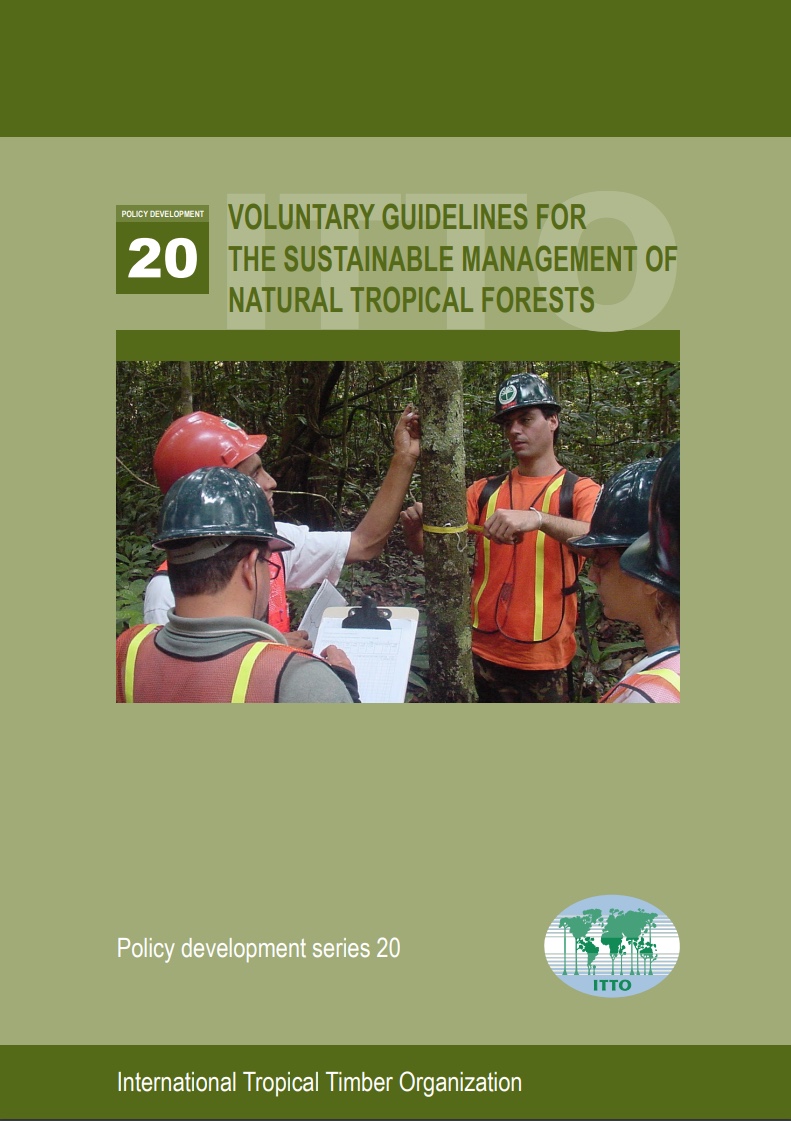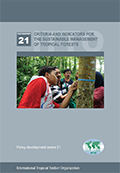Location
ITTO is an intergovernmental organization promoting the conservation and sustainable management, use and trade of tropical forest resources. Its members represent about 80% of the world's tropical forests and 90% of the global tropical timber trade.
ITTO develops internationally agreed policy documents to promote sustainable forest management and forest conservation and assists tropical member countries to adapt such policies to local circumstances and to implement them in the field through projects. In addition, ITTO collects, analyses and disseminates data on the production and trade of tropical timber and funds a range of projects and other action aimed at developing industries at both community and industrial scales. For more information on ITTO's action program go to ITTO at work, or see the Organization's Biennial Work Programme.
Members may submit project proposals to the Council for review and financing in accordance with the ITTO project cycle. Examples include pilot and demonstration projects, human resource development projects, and research and development projects; the Organization's Action Plansets out the types of activities that it should undertake in project and policy work. All projects are funded by voluntary contributions, mostly from consuming member countries. Since it became operational in 1987, ITTO has funded more than 800 projects, pre-projects and activities valued at more than US$300 million. The major donors are the governments of Japan, Switzerland, the USA, the Netherlands and the EU.
Members:
Resources
Displaying 1 - 5 of 6Voluntary guidelines for the sustainable management of natural tropical forests
The Voluntary Guidelines for the Sustainable Management of Natural Tropical Forests constitute an international reference document for the development and improvement of national and subnational guidelines for the sustainable management of natural tropical forests. They also provide a reference on technical issues at the macro (landscape) and micro (forest management unit) scales.
Criteria and indicators for the sustainable management of tropical forests
This publication is an update to ITTO's Criteria for the Measurement of Sustainable Tropical Forest Management which was produced to assist in monitoring and assessing the condition of natural tropical forests in the Organization’s producer member countries and in identifying improvements needed in forest practices.
Governing the forests: an institutional analysis of REDD+ and community forest management in Asia
This report examines the history, structure and monitoring mechanisms of REDD+ to better understand how it impacts upon, and interacts with, Community Forest Management (CFM). It presents case studies of CFM and REDD+ governance from Bangladesh, Indonesia and India, and concludes with some lessons learned.REDD+ is an example of multilevel governance that uses a variety of institutional structures and processes aimed at promoting sustainable management of forests, including financial incentives to reduce deforestation and forest degradation.
Negotiating more than boundaries: conflict, power, and agreement building in the demarcation of village borders in Malinau
CIFOR facilitated 27 communities in the Upper Malinau watershed to develop agreements about their village boundaries and map them through participatory methods. Decentralization reforms created new values of forest resources and uncertainties that increased conflict over local resources. We report on the nature of these conflicts, the stability of agreements and the factors affecting how agreements were reached.
ITTO project PD 12/97 Rev.1 (F) - Forest, science and sustainability: the Bulungan model forest: completion report phase I 1997-2001
This document is a report on the implementation of an initial project of Bulungan Research Forest in East Kalimantan, Indonesia 1997-2001 with financial support from International Tropical Timber Organization (ITTO). It contains an executive summary, the main text of the project objectives and outputs, brief report on technical and scientific aspects, lessons learned and recommendations for future projects.





